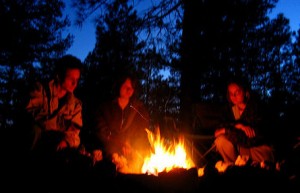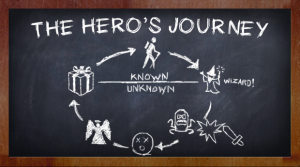 As the fugitives gather around a campfire and share stories, S. worries that his lack of a past makes him less human. Straka, Jen, and Eric suggest that story telling is an essential part of the human experience. “We create stories to help us shape a chaotic world, to navigate inequities of power, to accept our lack of control over nature, over others, over ourselves.”
As the fugitives gather around a campfire and share stories, S. worries that his lack of a past makes him less human. Straka, Jen, and Eric suggest that story telling is an essential part of the human experience. “We create stories to help us shape a chaotic world, to navigate inequities of power, to accept our lack of control over nature, over others, over ourselves.”
FXC explains that that sentence appeared verbatim in a letter she received from Straka. Jen is quick to note that FXC’s footnote does not follow the “ex” model that the others do, but Eric suggests FXC takes a break from the code to brag about “how close she is with Straka.” The complexity of the code makes Jen and Eric’s theories more credible.
FXC, Jen, and Eric tell many stories about their pasts throughout the course of the novel, making storytelling an important motif. The connection between identity and stories is also significant. This page suggests that people base their identities on their stories. S. challenges this notion.


You must be logged in to post a comment.